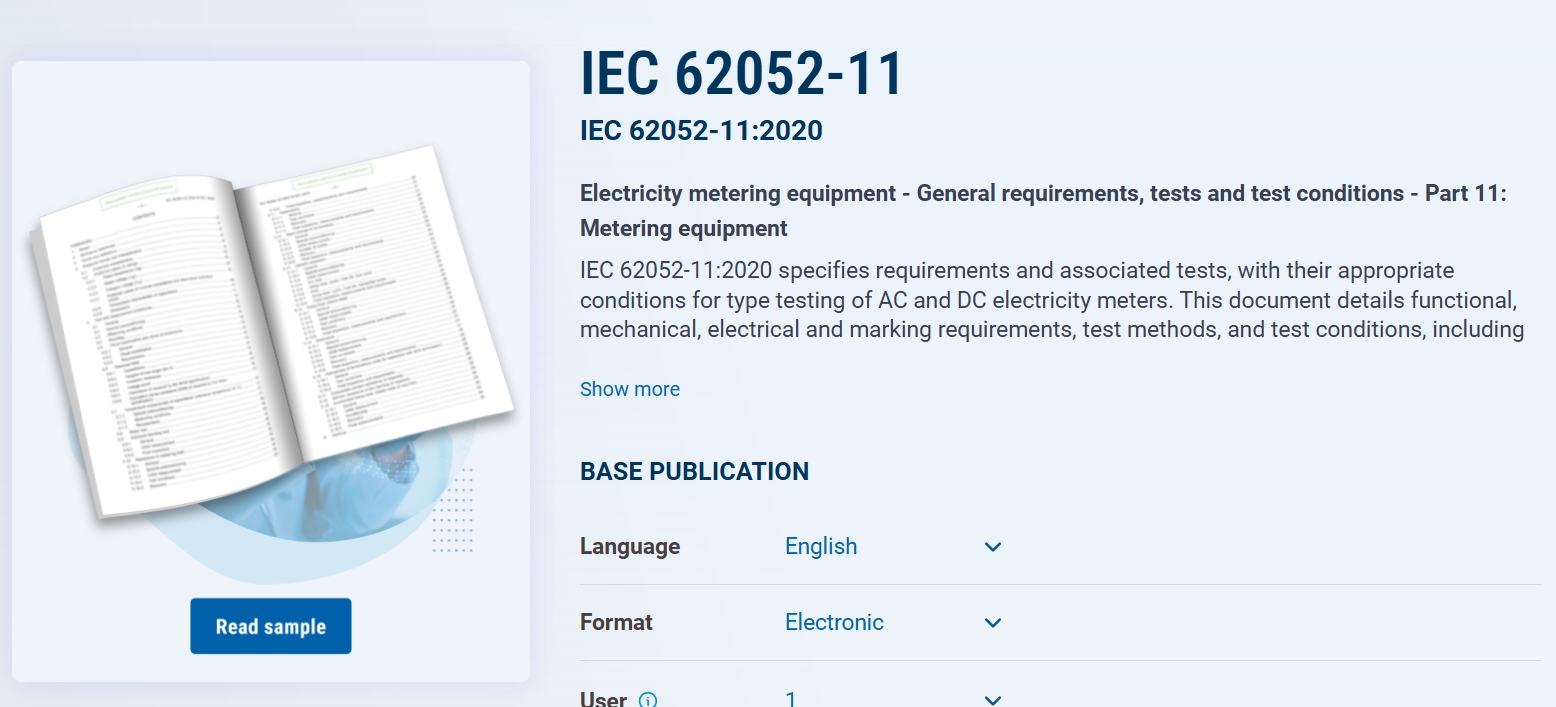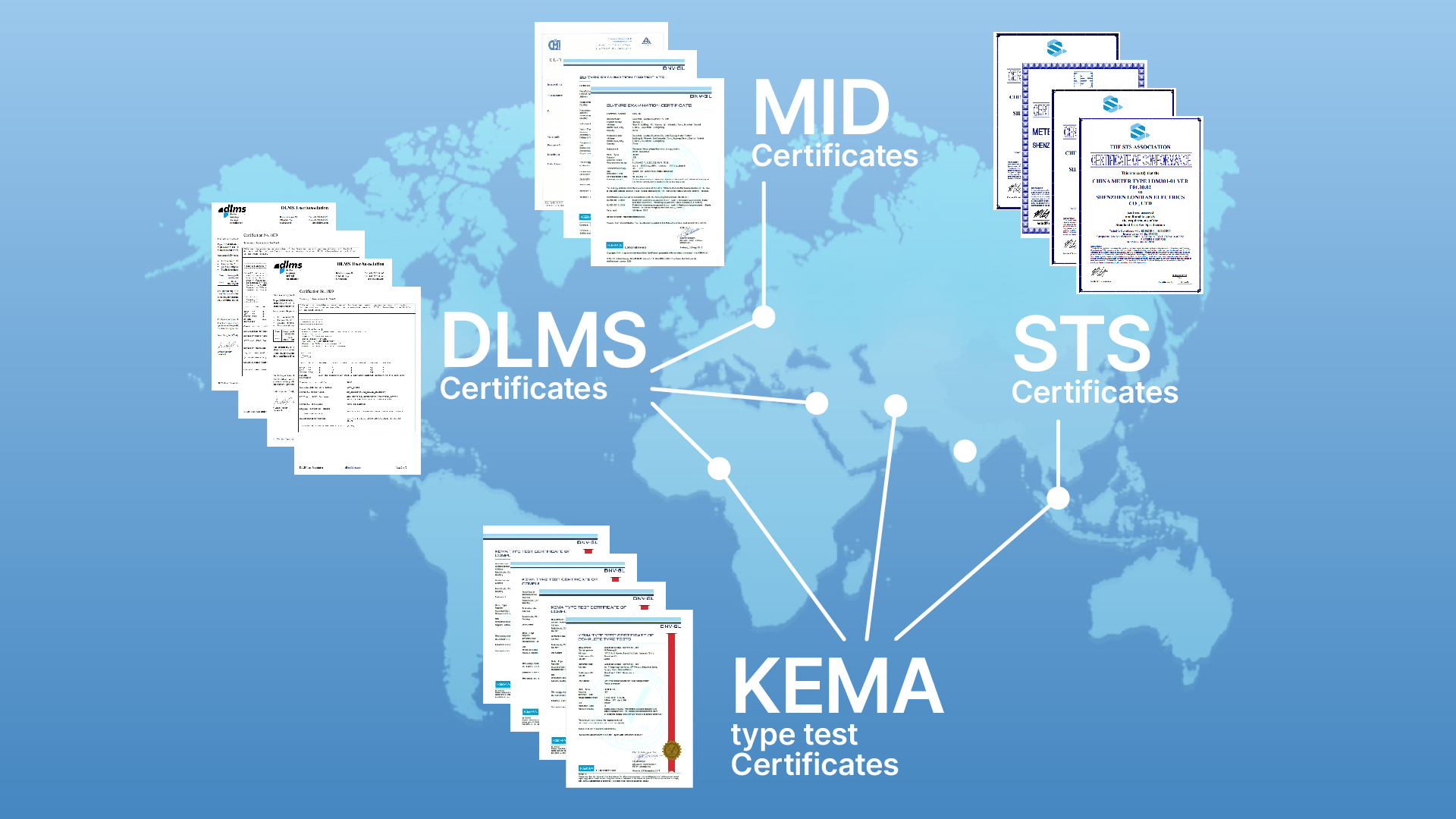IEC 62052 Smart Meter
O IEC 62052 smart meter, developed by the International Electrotechnical Commission (IEC), is a crucial guideline for electrical measurement equipment, particularly on electric meters. In smart meters, this standard plays a pivotal role in ensuring accuracy, performance, safety, and reliability.

Accuracy and Performance Requirements
IEC 62052 smart meter accuracy and performance requirements when measuring alternating current (AC). These requirements ensure that smart meters provide accurate and reliable measurement data under various conditions. Accuracy is crucial for electricity billing, while performance requirements guarantee that the meters can handle different electrical loads and frequencies without compromising their readings.
Electrical and Mechanical Requirements
The standard also outlines the electrical and mechanical characteristics of smart meters. This includes input voltage range, current carrying capacity, frequency response, and other related parameters. By adhering to these requirements, smart meters are designed to operate stably in practical applications, withstanding various environmental and operational stresses. This ensures their longevity and reduces the risk of failure.
Communication and Data Processing
With the advent of smart grids, smart meters need to support remote communication and data processing functions. Although IEC 62052 primarily focuses on the electrical and mechanical properties of measurement equipment, it also addresses aspects related to the communication and data processing of smart meters. This ensures compatibility in communication protocols and data formats among meters produced by different manufacturers. It facilitates seamless integration of smart meters into the smart grid ecosystem, enabling efficient data collection, analysis, and management.
Safety and Reliability
As an important component of the power system, the safety and reliability of smart meters are paramount. IEC 62052 sets clear requirements for the safety and reliability of smart meters, including the prevention of misoperations and malicious attacks. These requirements ensure that smart meters operate safely and reliably, protecting both the grid and users from potential hazards. They also contribute to the overall stability and resilience of the power system.
Conclusão
In conclusion, the IEC 62052 standard plays a vital role in the development and deployment of smart meters. By specifying accuracy and performance requirements, electrical and mechanical characteristics, communication and data processing capabilities, and safety and reliability measures, this standard ensures that smart meters meet the needs of modern power systems. As technology continues to advance and smart grids become more integrated into our daily lives, the importance of adhering to the IEC 62052 standard will only grow.

